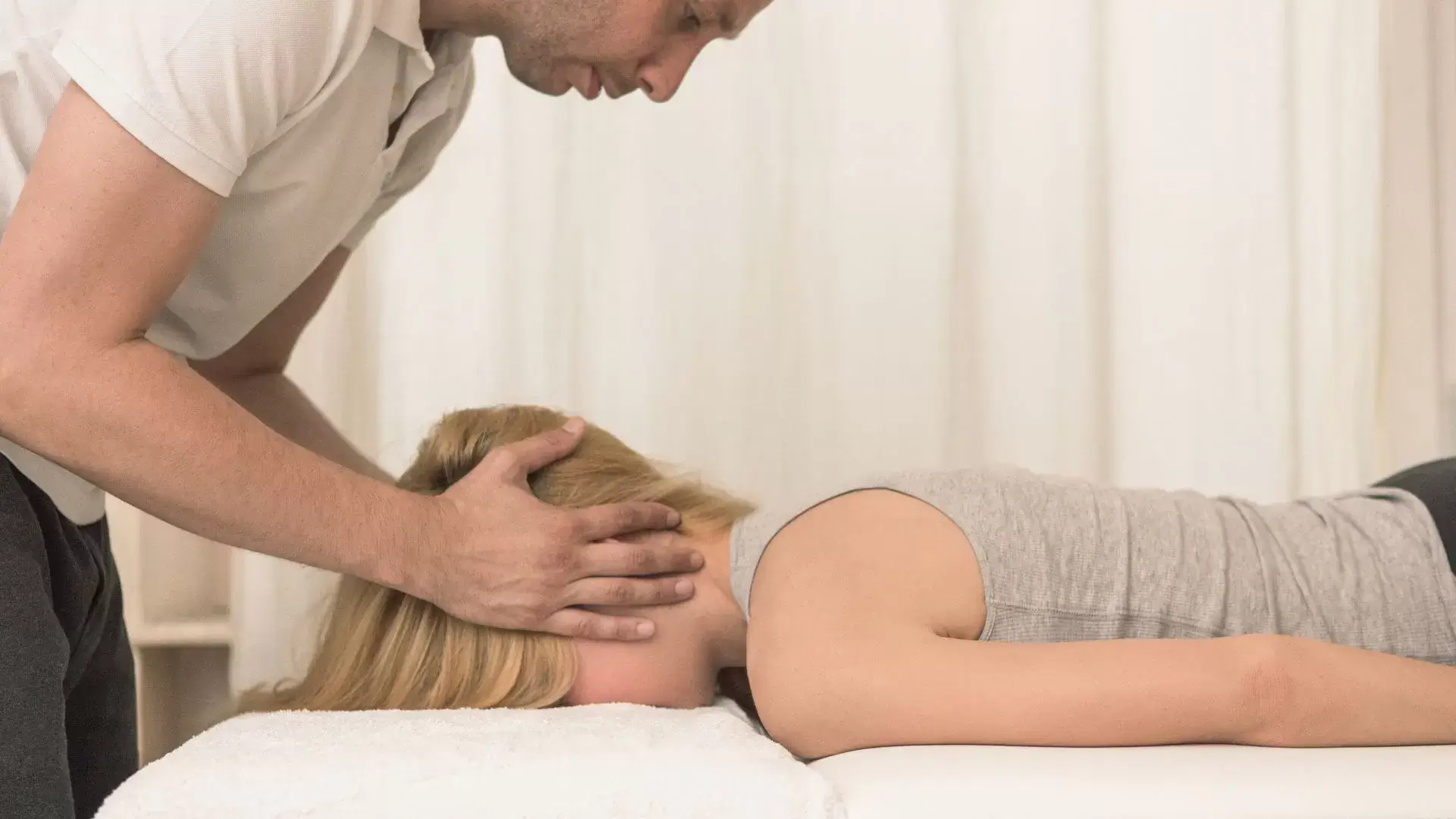When managing a concussion, we recognize that a holistic approach is essential for effective recovery. A chiropractor for concussion can help address physical, emotional, and cognitive symptoms, including headaches and dizziness. Through tailored adjustments and therapies, we can enhance coordination and support spinal alignment, aiding nervous system function. This often leads to improved balance and alleviates emotional distress. It’s important to monitor symptoms closely and engage in supportive practices like nutrition and hydration. By embracing chiropractic services, we take proactive steps in our recovery journey, and there’s much more we can explore about how to optimize our healing process.

At Physio Chiro Clinic, we focus on providing thorough physiotherapy and chiropractic services designed to address the unique needs of each patient, ensuring a holistic approach to recovery and well-being. We recognize the complexities of concussions and the challenges posed by post-concussion syndrome. Our team is dedicated to delivering evidence-based treatments that include neurorehabilitation and vestibular dysfunction management, tailored specifically for each individual.
We offer specialized physical therapy for concussion, which integrates cognitive therapy to help patients regain their normal function and quality of life. Our rehabilitation protocols align with current return-to-play guidelines, ensuring that athletes can safely reintegrate into their sport after recovery. Additionally, we provide extensive headache management strategies that address the multifaceted nature of concussion-related symptoms.
Concussions occur when the brain is jolted or shaken, often as a result of a blow to the head, and understanding their causes and effects is fundamental for effective recovery and long-term well-being. These injuries are classified as traumatic brain injuries (TBIs) and can lead to a range of symptoms, including loss of consciousness, cognitive impairment, memory loss, dizziness, and visual disturbances.
When we experience head trauma, it’s essential to follow a concussion protocol to guarantee we receive appropriate care. Immediate assessment and understanding of the symptoms are imperative for our recovery journey. Post-injury rehabilitation often incorporates vestibular therapy, which helps address balance and motion-related issues that may arise after a concussion.
Recognizing the symptoms of a concussion is essential, as timely intervention can greatly affect our recovery and overall health. A concussion, often referred to as a mild traumatic brain injury, can manifest in various ways. We might experience confusion, amnesia, or even dizziness after a head injury. Other common symptoms include blurred vision, coordination issues, and post-traumatic headaches.
It’s important to remember that emotional instability can also arise, making it vital for us to monitor our mental health during recovery. If we notice these symptoms after a head injury, we should seek care promptly. Delaying assessment can exacerbate our condition and prolong our return-to-work program.
If we experience any severe symptoms, such as persistent headaches, difficulty walking, or a worsening of our mental state, we shouldn’t hesitate to consult a healthcare professional. Early recognition and intervention not only aid in our recovery but also help prevent further complications. By being vigilant about our symptoms, we empower ourselves to take charge of our health, ensuring a smoother path to recovery.
Exploring effective recovery strategies is important, and chiropractic care can play a significant role in helping us regain balance and alleviate symptoms following a concussion. This holistic approach focuses on our overall well-being, addressing not just physical symptoms but also emotional and cognitive aspects of recovery.
Chiropractic care often includes balance therapy, which helps improve our coordination and stability, especially if we’re experiencing issues like photophobia or phonophobia. These therapies can be paired with neurocognitive testing to assess our cognitive function and identify areas needing improvement.
Additionally, incorporating occupational therapy can enhance our daily activities and facilitate a gradual return to activity, ensuring we don’t rush the healing process. Many of us may also experience neck pain or whiplash after a concussion, and chiropractic adjustments can help alleviate these symptoms, further supporting our recovery journey.

After a concussion, many of us experience whiplash and neck pain, which can considerably hinder our recovery and overall well-being. These symptoms often accompany headaches, balance problems, and dizziness, making it challenging to return to our daily activities. Whiplash injuries commonly occur during sports-related concussions, and pediatric concussion cases may present even more complexities as children’s bodies are still developing.
Addressing neck pain through a holistic approach is important. We should consider therapies that target the underlying causes, such as inner ear dysfunction that can exacerbate balance issues. Gentle chiropractic adjustments, physical therapy, and specific exercises can help alleviate neck pain and promote healing. Understanding our individual recovery timelines is critical; pushing too hard too soon can lead to setbacks.
We must also recognize the significance of monitoring our symptoms closely. If dizziness or headaches persist, it’s important to consult healthcare professionals who specialize in concussion management. By taking proactive steps in addressing whiplash and neck pain, we can enhance our recovery journey, ultimately leading to better outcomes and a return to the activities we love.
Chiropractic adjustments can play an essential role in alleviating post-concussion headaches, offering a patient-centered approach that addresses the underlying musculoskeletal issues contributing to discomfort. After experiencing a brain injury or brain trauma, many of us may suffer from persistent headaches, brain fog, and other symptoms like vertigo, insomnia, and mood swings.
Through targeted chiropractic adjustments, we can help restore proper alignment and function in the spine and neck, which often become compromised after a concussion. This holistic approach not only aims for headache relief but also addresses broader issues resulting from the injury.
Research indicates that chiropractic care can reduce the frequency and intensity of post-concussion headaches, decreasing the risk of complications like second impact syndrome. By focusing on restoring balance and reducing tension in the body, we can support our overall recovery process.
If we’re struggling with ongoing symptoms following a concussion, consulting a chiropractor may provide the relief we need. By integrating chiropractic adjustments into our recovery plan, we can work towards regaining our health and well-being, ultimately enhancing our quality of life.
Vestibular rehabilitation is an important component in addressing balance and dizziness issues that often arise following a concussion. We understand that these symptoms can greatly impact daily life, making it essential to implement a tailored rehabilitation program. This process typically begins with baseline concussion testing and impact testing to assess the severity of the injury and monitor recovery.
Through vestibular rehabilitation, we concentrate on specific exercises designed to restore balance and reduce dizziness. These exercises can help retrain the brain and improve coordination, which is crucial after experiencing brain swelling or other concussion-related symptoms like slurred speech.
In addition to exercises, we emphasize the importance of hydration and nutrition, including omega-3 for brain health, to support recovery. By adopting a holistic approach, we can address not just the physical aspects of vestibular issues but also the emotional and cognitive challenges that accompany them.
Ultimately, our goal is to empower patients to regain their balance and confidence, ensuring they can return to their daily activities safely and effectively. Together, through personalized care and ongoing support, we can facilitate a smoother recovery journey.
Enhancing cognitive function post-concussion is vital for recovery, as it directly impacts our ability to engage in everyday activities and maintain mental clarity. After experiencing a coup-contrecoup injury or diffuse axonal injury, we may face challenges such as difficulty concentrating, fatigue, and sleep disturbances. These symptoms can lead to irritability, anxiety, and even depression, further complicating our recovery process.
Research shows that cognitive rehabilitation can greatly improve our cognitive abilities. Utilizing techniques guided by functional MRI studies, we can target specific brain regions affected by the concussion. Through a combination of cognitive exercises and mindfulness practices, we can enhance our attention spans and reduce delayed reaction times, allowing us to regain mental agility.
Moreover, fostering a supportive environment plays a vital role in our recovery. Engaging in social activities, maintaining a balanced diet, and ensuring proper hydration can help minimize fatigue and improve mood. By addressing these multifaceted aspects of recovery, we can work together to enhance our cognitive function and ultimately achieve a more successful return to daily life.
Addressing sleep disturbances and fatigue is an important aspect of our recovery process, especially as these symptoms often accompany cognitive challenges after a concussion. Whether we’ve experienced a motor vehicle accident concussion or a workplace concussion, it’s vital to understand how our bodies respond to these injuries.
Chiropractors can play a significant role in alleviating sleep disturbances and fatigue. Through hands-on techniques, they help restore spinal alignment, which can improve nervous system function and promote relaxation. Many of us experience sensitivity to light and noise after a concussion, which can disrupt our sleep patterns. Chiropractors may suggest strategies to minimize these sensitivities, including adjustments to our environment and lifestyle changes.
Moreover, addressing blue light sensitivity is essential, as excessive screen time can exacerbate fatigue and sleep issues. A chiropractor may recommend techniques to reduce exposure to blue light, such as adjusting screen settings or using filters. By taking a holistic approach, we can better manage our symptoms and work towards preventing long-term issues, like chronic traumatic encephalopathy. Ultimately, with the right chiropractic support, we can enhance our overall well-being and recovery journey.

Many of us may experience emotional changes, such as anxiety, irritability, and depression, following a concussion, making it essential to incorporate effective management strategies into our recovery plan. These emotional shifts can notably impact our mental health and overall well-being, so addressing them is critical for a holistic recovery.
Chiropractic care can play an important role in symptom management by helping to alleviate physical tension, which may contribute to emotional distress. By focusing on spinal alignment and nervous system function, we can create a supportive environment for our bodies to heal. Additionally, integrating mindfulness practices, such as meditation and deep breathing exercises, can help us regain emotional balance and reduce anxiety.
We should also consider fostering connections with friends, family, or support groups to share our experiences and feelings. These relationships can provide us with the encouragement needed to navigate our emotional landscape during recovery. Ultimately, it’s about recognizing the interplay between physical and emotional health, allowing us to create a thorough approach that supports both aspects. By prioritizing our emotional well-being, we can enhance our recovery journey after a concussion and move toward a healthier future.
Vision issues often arise after a concussion, impacting our overall neurological health and requiring thorough assessment and management to support recovery. Symptoms like double vision, difficulty focusing, and nausea can greatly affect our daily lives and cognitive function. It is important to recognize that these visual disturbances can also lead to vomiting and delayed recall, complicating our recovery process.
In the case of repeated head injuries, the risk of persistent vision problems increases, which can further impair our neurological health. Extensive assessments, including CT scans, are essential for identifying any underlying issues that may need attention.
A patient-centered approach guarantees that we address not just the physical symptoms but also the emotional and cognitive aspects of recovery. By working closely with healthcare professionals, we can develop an individualized plan that includes vision therapy and other supportive treatments to enhance our healing process.
Ultimately, maintaining ideal vision is critical for our overall neurological well-being after a concussion. Through a holistic perspective, we can better navigate the challenges that arise and promote a healthier recovery journey.
After maneuvering through the complexities of vision and neurological health post-concussion, we can turn our focus to how chiropractic guidance plays a pivotal role in facilitating a safe return-to-play and return-to-work process. For individuals recovering from a traumatic brain injury (TBI), a thorough assessment is essential. This often includes a CT scan for concussion to rule out any serious complications.
At our practice located at 123 ABC Road, Oakville, Ontario, we emphasize a patient-centered approach. We work closely with each individual, taking into account their unique symptoms and recovery timeline. Our goal is to provide tailored chiropractic interventions aimed at alleviating neck pain, headaches, and other post-concussion symptoms, which can hinder performance whether on the field or at work.
Nutrition and hydration play fundamental roles in supporting brain recovery after a concussion, as they provide the necessary nutrients and fluids that help repair damaged tissues and enhance cognitive function. We’ve found that a balanced diet rich in antioxidants, omega-3 fatty acids, and vitamins can greatly contribute to brain health. Foods like fatty fish, nuts, berries, and leafy greens are excellent choices. These nutrients help reduce inflammation and oxidative stress, which are critical for recovery.
Hydration is equally important. Dehydration can lead to headaches and cognitive decline, so we need to guarantee we’re drinking enough fluids throughout the day. Water is our best choice, but we can also include hydrating foods like fruits and vegetables.
Moreover, we should consider the timing of our meals. Consistent, smaller meals can help maintain stable energy levels and support brain function during recovery. It’s important to listen to our bodies and adjust our diets based on how we’re feeling.
As we focus on nutrition and hydration for brain recovery, it’s also essential to contemplate long-term rehabilitation strategies that help prevent secondary injuries and support overall healing. A thorough approach to rehabilitation often includes physical therapy, cognitive exercises, and lifestyle modifications tailored to each individual’s needs.
Research shows that incorporating balance training and coordination exercises can greatly reduce the risk of falls and further injuries, particularly in athletes. We can also emphasize the importance of gradual return-to-activity protocols that allow patients to regain confidence and physical ability without overwhelming their recovery process.
Additionally, mental health plays a vital role in rehabilitation. Addressing anxiety or mood changes through counseling or support groups can enhance recovery outcomes and foster a more holistic healing environment.
We should also encourage regular follow-ups with healthcare providers to monitor progress and adjust rehabilitation plans as necessary. By committing to these long-term strategies, we can create a supportive framework that not only aids recovery but also empowers individuals to take charge of their health, ultimately reducing the risk of secondary injuries and promoting lasting wellness.
If you’re experiencing symptoms of a concussion, scheduling an appointment for expert chiropractic care can be an integral step toward effective recovery and improved overall health. Chiropractic care offers a holistic approach that focuses on restoring balance and function to our nervous system, which is vital after a concussion.
During our initial consultation, we’ll review your medical history and conduct a thorough assessment to understand your unique symptoms and challenges. This patient-centered approach allows us to create a tailored treatment plan that may include spinal adjustments, soft tissue therapy, and rehabilitative exercises. These interventions aim to alleviate pain, improve mobility, and enhance neurological function.
Research supports the effectiveness of chiropractic care in managing concussion symptoms, as it can help reduce headaches, dizziness, and cognitive difficulties. By addressing these issues, we can facilitate a quicker recovery and help prevent long-term complications.
Scheduling an appointment is a proactive step we can take together to promote ideal healing. Remember, we’re here to support you every step of the way, guiding you toward a safe return to daily activities and sports. Let’s take this journey to recovery together.
When we consider treatment duration for various conditions, it often varies based on individual needs and responses. For many, a holistic approach may involve several sessions over weeks to months, ensuring we address all aspects of health. Typically, we might expect to attend treatment sessions 1-3 times a week, but it is crucial to monitor progress and adjust accordingly. Our overall goal is to promote healing and improve well-being in a supportive environment.
Yes, we can definitely combine chiropractic care with other treatments for concussion. Integrative approaches often yield better outcomes, as they address various aspects of recovery. For instance, we might couple chiropractic adjustments with physical therapy, cognitive rehabilitation, or nutritional support. This holistic method guarantees we’re not just treating symptoms but also promoting overall wellness. By working together with other healthcare professionals, we can create a tailored plan that suits our individual needs and enhances recovery.
When considering chiropractic adjustments, we should recognize there can be risks involved, especially after a concussion. It’s vital to understand that individual responses vary, and some might experience discomfort or exacerbation of symptoms. We need to prioritize open communication with healthcare providers to guarantee a thorough approach to our recovery. By staying informed and involved in our care, we can make decisions that align with our overall health and well-being.
When we’re searching for a chiropractor, we should prioritize their qualifications and experience. It’s essential to choose someone with a Doctor of Chiropractic degree and specialized training in concussion management. We’d want to look for certifications in sports medicine or neurological care, as they indicate a deeper understanding of our needs. Additionally, reading reviews and ensuring they focus on holistic approaches can help us feel confident in their ability to support our recovery.
When we consider insurance coverage for chiropractic care, it often varies by plan and provider. Many insurance companies do cover chiropractic services, but specifics can depend on our individual policies. It’s crucial to check with our insurance provider to understand what’s included. We should also verify that the chiropractor we choose is in-network to maximize our benefits. This way, we can receive holistic care while managing our financial responsibilities effectively.
Reach out to us today to book an appointment or learn more about our services. Our friendly team is here to answer your questions and help you take the first step toward improved health and wellness.
(647) 372-1209

At our Physio-Chiro Clinic, we are dedicated to providing personalized care that addresses the root cause of your discomfort. With a team of experienced physiotherapists and chiropractors, we focus on restoring your mobility, relieving pain, and enhancing your overall well-being.